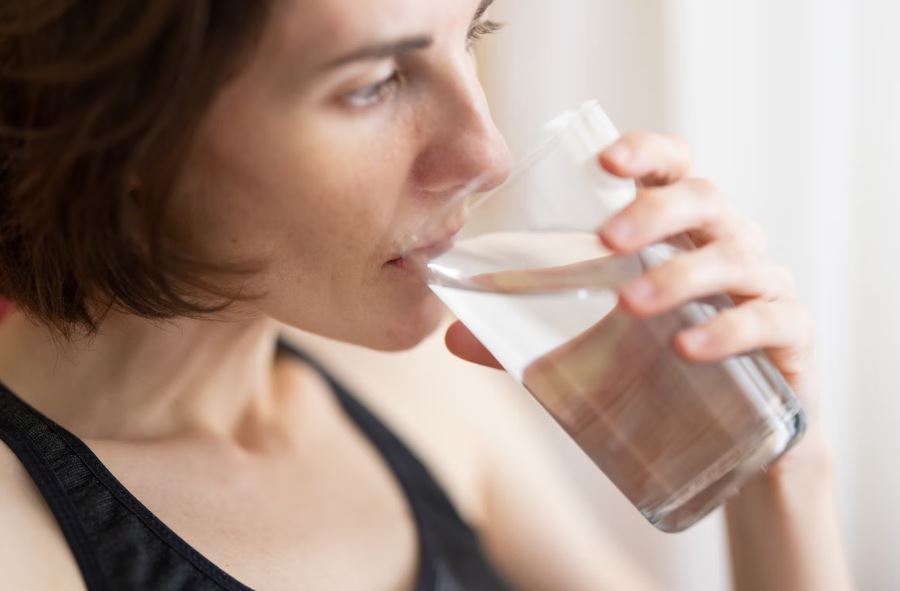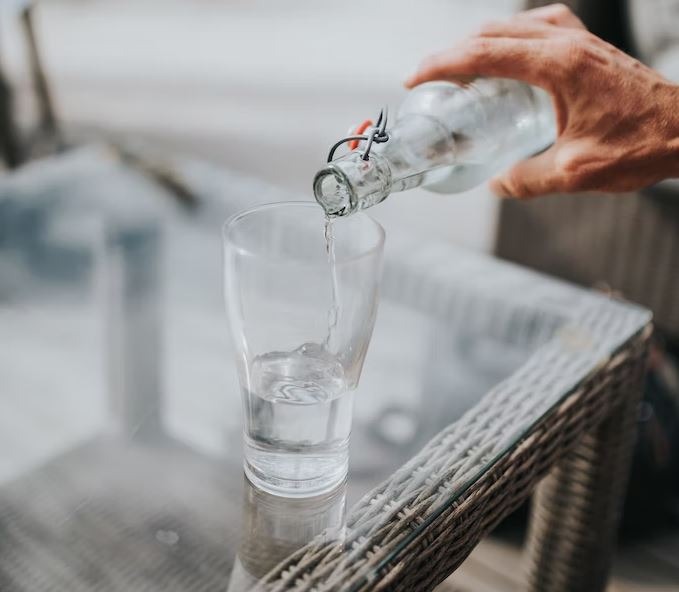Some people obsessively consider how much water they consume. You see them walking around with sizable water bottles that have measurements and a daily “requirement” for drinking. If you are one of them, you may have noticed that your mouth is in good shape.
However, a lot of people don’t drink water. Some people have a dislike for plain water as their reason. Others simply prefer a much wider variety of other beverages. They drink coffee to start the day, then iced tea or soda at lunch, then a sports drink at the gym following a workout and a glass of wine with dinner. Consuming this kind of beverage can damage your mouth. If this applies to you, you should read this article to learn how crucial water consumption is to maintaining good oral health.
Why Drinking Water is Good for You
The best beverage to support your mouth’s health is water. It performs numerous functions to support strong teeth and gums. Also, water can help you keep your teeth fresh while traveling.
1. Neutralizes The Mouth
We must emphasize that only plain water has a pH that is neutral because it’s critical to remember that sparkling water has an acidic pH. The majority of other drinks you can have are acidic. This includes alcoholic beverages, carbonated beverages, sports drinks, coffee, tea, and sodas. Acid poses the biggest threat to tooth enamel. Cavities are caused by bacteria in dental plaque penetrating the enamel with acid. Water helps to balance the pH in the mouth, reducing the acidity that cavity-causing bacteria produce. Water safeguards the enamel.
2. Supports Salivary Function
A saliva is a crucial tool in the battle against oral acidity. Your body cannot produce saliva without water because it is slightly alkaline (above neutral on the pH scale) and balances an acidic pH. The body’s response to dehydration is to stop producing saliva, which results in a dry mouth. A mouth that is well-moisturized is less acidic than one that is dry. You give your salivary glands the nutrients they require to produce healthy saliva and protect your mouth by consistently drinking water.
3. Fights Bacteria
Water consumption helps fight bacteria in several different ways. We’ve already discussed how water’s neutral pH works to counteract the acidic pH that disease-causing bacteria produce. By switching from a sugary drink to plain water, you deprive the bacteria that cause cavities of their source of energy. The plaque has a harder time adhering to the teeth when the mouth is well-moisturized and has plenty of saliva. Dental plaque is a sticky film that sticks to dry teeth and gums readily. They have a much harder time sticking to a slippery surface.
4. Flushes Loose Food Debris and Plaque
After a meal, drinking water is a wonderful and risk-free way to remove food and plaque from the teeth. We are aware that it can be challenging to brush and floss after lunch on a busy workday. If you are already drinking water, you can simply swish it around in your mouth a little before swallowing. When we eat, food particles and plaque start to build up on our teeth and gums. This helps to break up these areas. This is a useful tool at any time, not just right after meals. Use it continuously to maintain healthy teeth and gums.
5. Moisturizes the Soft Tissues Lining the Mouth
Mouth injuries and sores are much more likely to occur in people who have a dry mouth. This is because of saliva’s crucial role in lubrication. Without enough lubrication, there is a higher risk of friction and injuries in a dry mouth. Biting of the tongue, cheeks, and lips is typical in a dry mouth. Oral sores and ulcers are also. Drinking water reduces the likelihood of irritating bites and ulcers by lubricating and moisturizing the mouth.
6. Water Has No Calories
Although you might not think so, this does have an impact on oral health. We pointed out that the majority of other beverages contain sugar, which is a major cause of tooth decay. You are not adding extra sugar to your meal or diet in general by drinking water. Not to mention that drinking water promotes weight loss, making it an even guilt-free choice.
Starting A Healthy Water Drinking Habit
To benefit from many of its advantages, it’s best if kids and adults develop the habit of drinking water early on. Here are some suggestions for getting your kid to drink more water:
- Give your child a customized water bottle or cup that is all theirs. Allow them to select their cup or container and explain that it is only for drinking water so they will always be eager to do so.
- Create a chart of water goals. Utilize a vibrant chart and stickers to keep track of how frequently they reach their water goal. Kids can receive additional rewards on a weekly or monthly basis, such as an activity, book, or another motivating item. Most teaching stores and even some office supply stores carry the charts. Additionally, kids love it when they get to choose the stickers
- As seen by, so done. Set a good example by meeting your water goals because children enjoy imitating others. So that you can hold each other accountable, let them assist you in choosing your unique water container. They will comply with your water rules if you do.
Why NOT Drinking Water is Bad for You
People who do not drink enough water frequently become dehydrated. This is because most other beverages cause your body to lose water. This is particularly valid for any beverages that also contain alcohol and sugar. Your body will naturally produce less saliva when it is dehydrated, which can cause a dry mouth. Your mouth is at high risk for dental diseases like cavities and gum disease if you don’t produce enough saliva. Additionally, it increases your risk of developing mouth ulcers and sores as well as cheek, tongue, and lip biting injuries to your soft tissues.
Your choice of beverages in place of water presents another serious drawback. Sugar content and pH are two factors in our drinks that can cause dental issues, and even drinks with no added sugar can harm teeth due to their acidic pH.
In Conclusion
Water consumption has many benefits, and good oral health is just one of them. Currently, drinking water does not excuse you from maintaining your regular oral hygiene routines. Make sure to brush three times daily and use floss as frequently as you can. However, drinking water after eating can help remove food particles that can cause tooth decay and other oral health problems. Drink water all day long, floss, and dental hygiene will quickly reach your goal.


